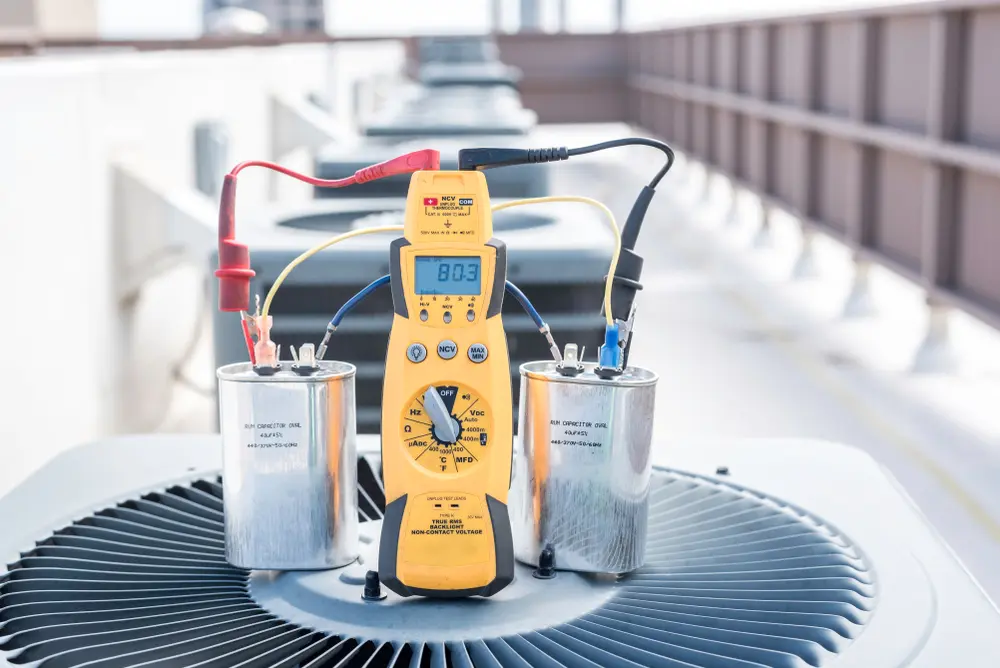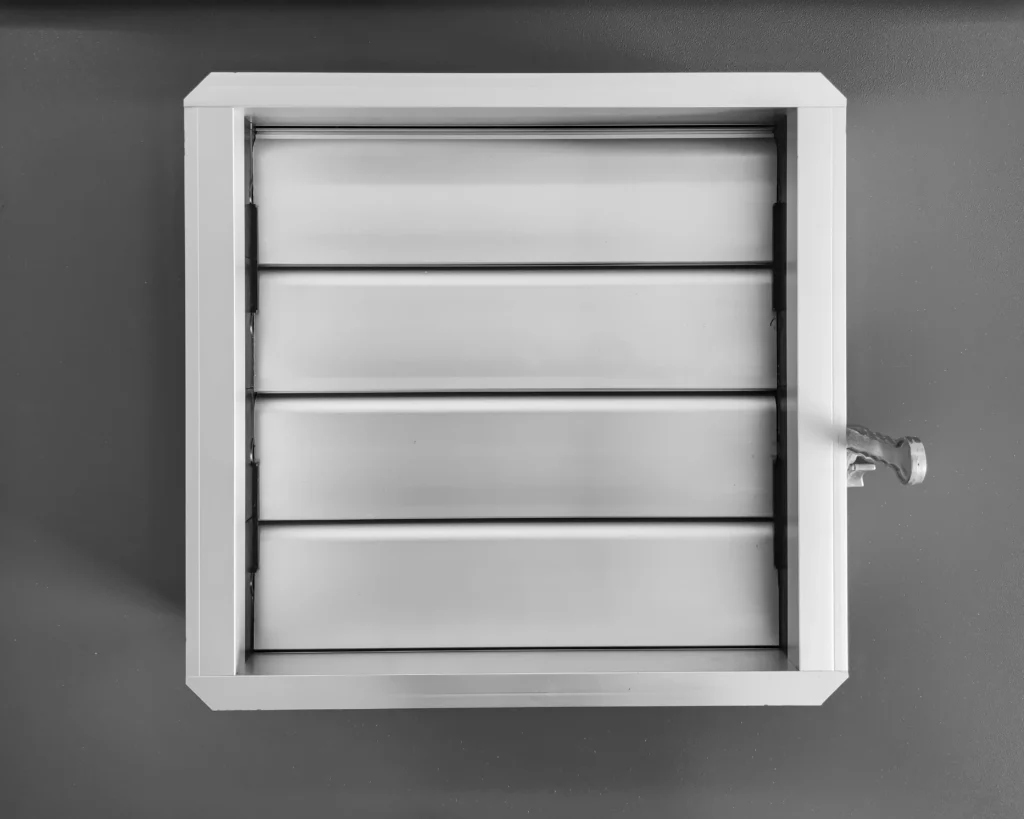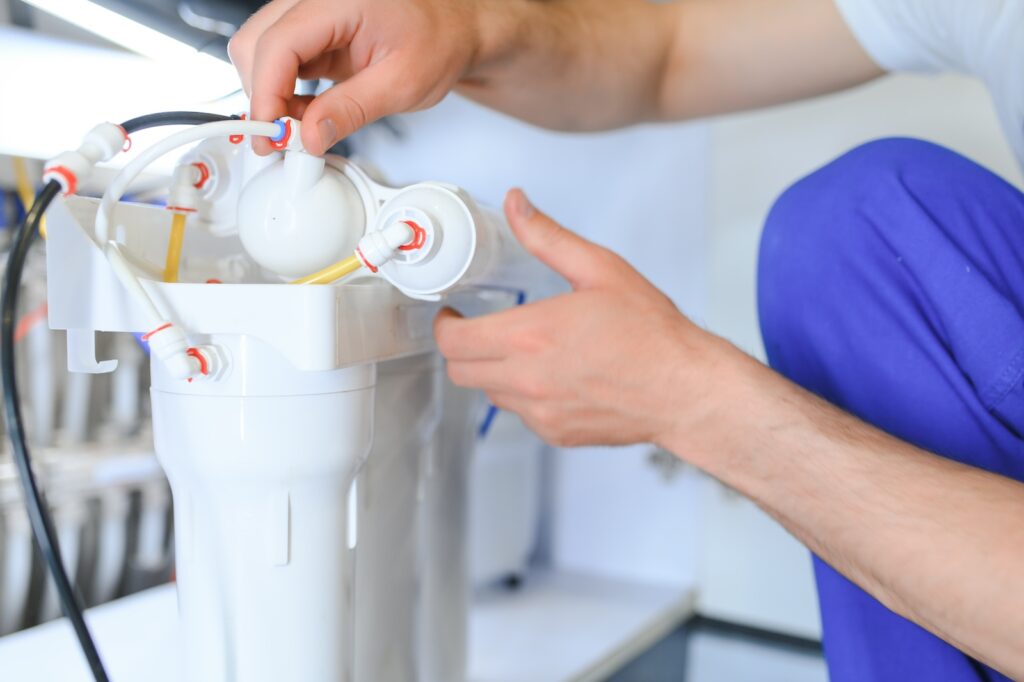
Blog
Bad AC Capacitor Symptoms: What to Look Out For

Your home's air conditioner holds significant importance among its appliances. A malfunctioning unit can cause considerable inconvenience for homeowners. AC capacitors play a crucial role in the functioning of any Indianapolis HVAC air conditioning system, and a deteriorating capacitor can precipitate AC problems.
What Is an Air Conditioning Capacitor?
An AC capacitor is a piece of equipment inside the outdoor condensing unit of an air conditioner. The AC capacitor delivers power to the motor driving the air conditioning system. The capacitor jumpstarts the cooling cycle by providing a surge of energy to the system. It then sustains operation by supplying consistent electricity until the cycle finishes. Initially, it delivers a power surge equivalent to 300 to 500 percent of the system's normal electrical requirement.
Once the air conditioner motor reaches its optimal speed, the capacitor regulates excess power and provides a stable energy supply throughout the cooling process. Much like a battery, the AC capacitor is similar to a battery, storing and distributing energy as needed during operation.
How Long Does an Air Conditioning Capacitor Last?
No homeowner wants to deal with ac issues, especially during the summer months. With the AC capacitor being the air conditioning unit’s main component, a fully functioning AC capacitor is a necessary item to avoid uncomfortable living conditions. AC capacitors can last a long time but will need to be replaced down the road.
With routine maintenance on your Indianapolis air conditioning unit, an AC capacitor can last up to 20 years. To avoid any issues, scheduling regular maintenance with a professional can make a world of difference. Following up on this advice will contribute to the longevity of your AC capacitor and your air conditioning unit as a whole.
7 Signs of a Bad AC Capacitor
Being able to tell the signs of a faulty AC capacitor is a key first step to diagnosing possible AC issues. Here are seven signs to tell if your AC capacitor is bad.
1. Air Conditioner Blowing Warm Air
When your air conditioner is running but is failing to blow cold air throughout your home, it could be a faulty AC capacitor. This symptom is insinuated by the air conditioning unit blowing out warm air. When the AC capacitor is bad, it prevents itself from starting and the air conditioner is no longer able to remove heat and transfer it outside the home.
2. Humming Noise
Another sign of a faulty AC capacitor is a humming noise coming from the access panel of the condenser unit. This will force the capacitor to operate at an excessive level, resulting in that mentioned humming noise.
This sound might also originate from the AC motor. To differentiate the noise, try turning the AC unit on and off. If the humming persists, it’s likely stemming from the AC capacitor.

3. Burning Smell
A particularly worrisome sign for a homeowner is a burning smell coming from the condenser unit. This smell usually signifies a faulty AC capacitor. This may be due to item obstruction, normal wear and tear for the system, or even overexertion. You might be able to fix it by lubricating the bearings, but replacement will be a better option for a long-term solution.
4. High Energy Bills
If your capacitor is damaged, it will cause the compressor to overwork itself. When components within the air conditioning system are run excessively, this can lead to higher energy bills. Identifying symptoms like high energy bills and getting repairs will prevent costs from compounding on top of each other. Having to pay higher energy bills and repairs is a nuisance that nobody wants to deal with.
5. Air Conditioner Turns Off
One of the many signs of a bad capacitor is the air conditioner turning off suddenly. The air conditioning system should never shut off on its own. It’s common for the unit to short circuit now and then, but continuous issues with your air conditioner need to be evaluated for a permanent fix.
6. Air Conditioner Won’t Turn On
Setting your thermostat to your desired temperature and the air conditioner refusing to turn on is an issue no homeowner wants to face. One of the issues that could cause this is a bad AC capacitor. If the AC capacitor is indeed bad, the air conditioner may take longer to turn on or won’t turn on at all. Severe damage to the AC capacitor may cause the air conditioner to not turn on period.
7. Aging HVAC System
The last sign your AC capacitor is faulty is the age of the component itself. If your air conditioning system is older and is struggling to maintain cooling cycles, this is a telltale sign that the AC capacitor has worn out over time. If the AC capacitor is bad, the system will not fulfill your home’s cooling demands, which leads to higher energy bills and a less comfortable home.
Schedule an Air Conditioning Repair With Chapman
The AC capacitor, like many other components within your air conditioning system, is integral to its functionality. There are seven symptoms to keep in mind when you might be weary of a bad AC capacitor:
- Air conditioner blowing warm air
- Humming noises
- Burning smell
- High energy bills
- Air conditioner turns off
- Air conditioner won’t turn on
- Aging HVAC system
Indianapolis homeowners want a reliable air conditioning system within their homes to maximize comfortability throughout the year’s hottest months and days. Contacting Chapman Heating, Air Conditioning & Plumbing will provide inspections, repairs, and emergency needs to make sure your AC capacitor and any other components are in order.










